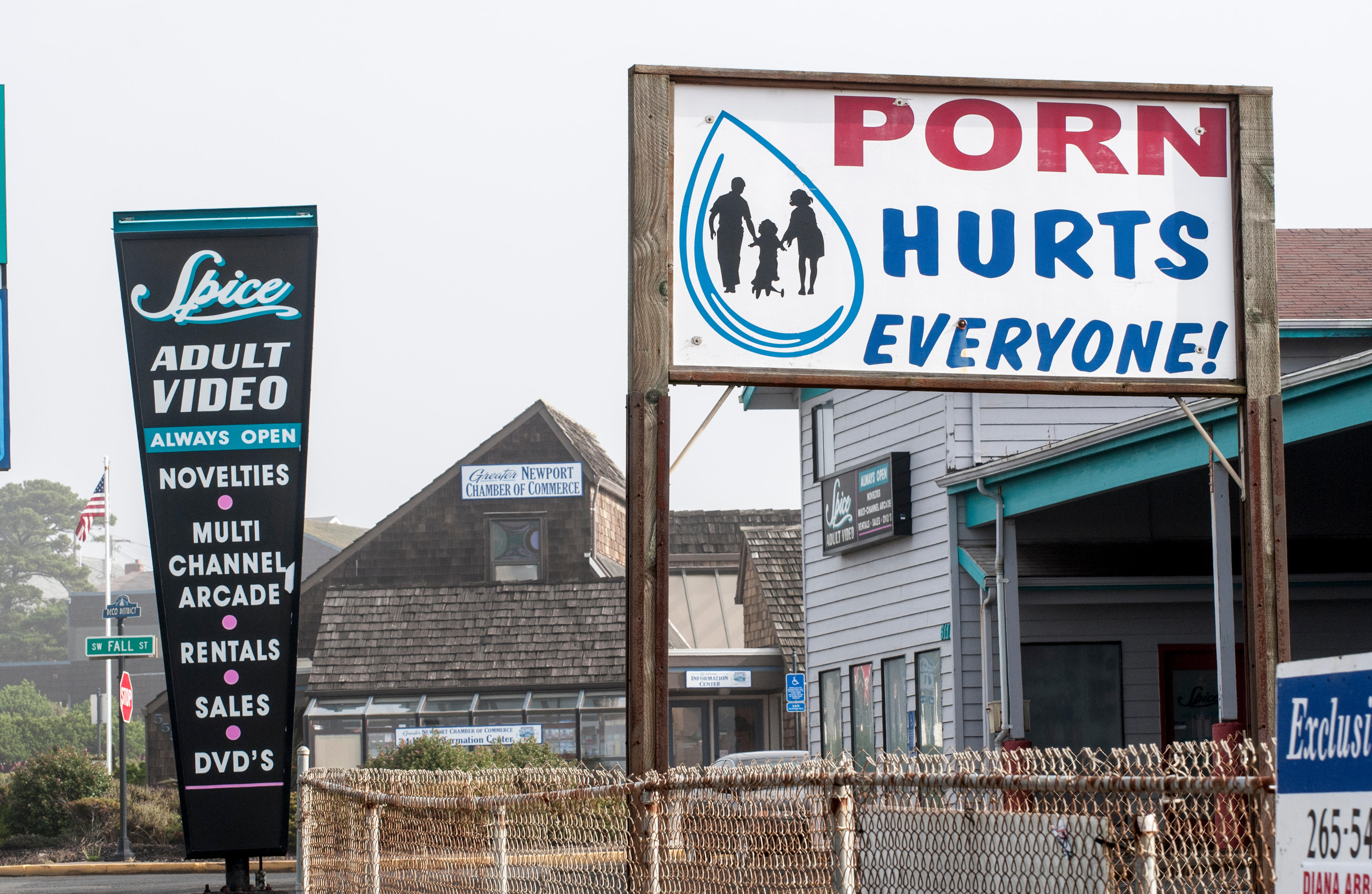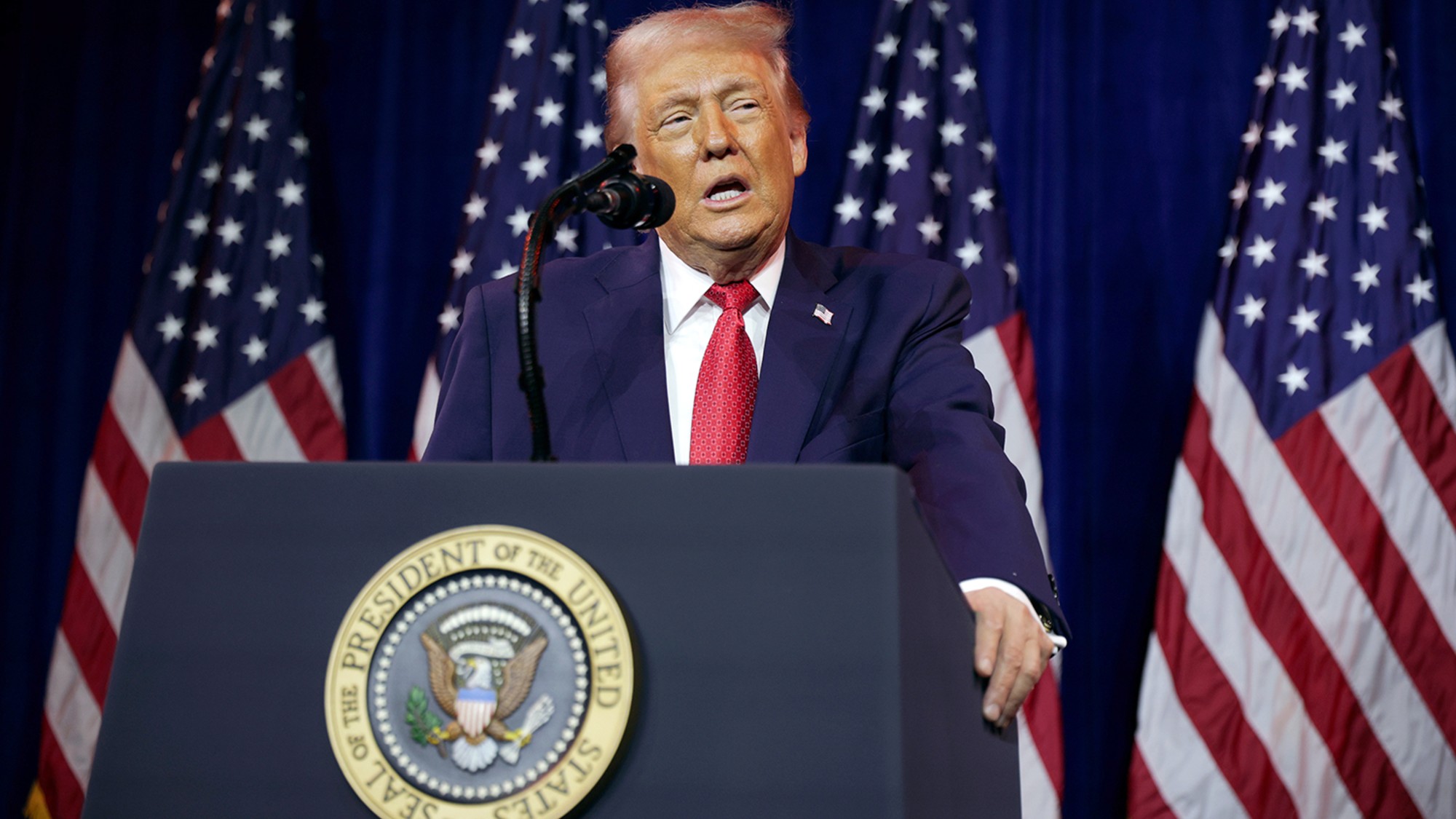The dwindling ambition of the religious right
The big dreams of traditionally conservative moralism are a thing of the past


There was a time in the not-so-distant American past when social conservatives dreamed big.
Jerry Falwell founded the Moral Majority in 1979 in part to fight for Christian prayer in public schools. During the 1980s, social conservatives from both parties pushed hard to regulate and restrict obscenity in pop music. As he prepared to run for re-election, Democratic President Bill Clinton made a play for social conservative voters by strongly supporting the Defense of Marriage Act. Eight years later, Republican President George W. Bush's re-election campaign worked closely with social conservatives to try and get a constitutional amendment banning gay marriage.
Those big ideas are long gone. Today, social conservatives are dreaming very small.
The Week
Escape your echo chamber. Get the facts behind the news, plus analysis from multiple perspectives.

Sign up for The Week's Free Newsletters
From our morning news briefing to a weekly Good News Newsletter, get the best of The Week delivered directly to your inbox.
From our morning news briefing to a weekly Good News Newsletter, get the best of The Week delivered directly to your inbox.
The conservative evangelical Protestants who have long been the foot soldiers of the religious right may be thrilled with President Trump's judicial appointments (and so willing to overlook his mountain of personal moral failings), but that excitement has nothing to do with ambitions to take back the country in the name of traditional moral values. On the contrary, evangelicals and their conservative Catholic allies today engage in politics from the position of a defensive crouch, anxiously hoping sympathetic judges will protect them from bullying at the hands of an administrative state empowered by anti-discrimination law to stamp out various forms of religiously grounded "bigotry."
To see the change, ask yourself when you can last recall hearing a major figure on the religious right propose a major reform of American public life. (And no, restrictions on abortion don't count, because supporting the placement of limits on abortion-on-demand doesn't require affirming traditional religious views; one need only believe in the existence of human rights and recognize that a fetus on a sonogram is a human being.) Since Bush's failure to reverse the rapid advance of gay marriage in the United States, the religious right has been playing defense and even entertaining withdrawal from active engagement in politics at the national level.
Ross Douthat's recent New York Times column in favor of banning pornography is the proverbial exception that proves this new rule. With its echo of arguments that Irving Kristol famously advanced against obscenity in the early 1970s and references to the brief tactical alliance during the 1990s between social conservatives and such anti-porn feminists as Catherine McKinnon and Andrea Dworkin, Douthat's column is very much a throwback to an earlier political-cultural moment, when a more confident religious right hoped to change the terms of public debate in the nation as a whole.
If the idea of sparking a movement in favor of prohibiting pornography was quixotic in these earlier eras, today it is downright ludicrous. Of course Douthat is too smart to deny the fanciful character of his proposal, which is why the whole column is written in a tone of "I know you think I'm crazy, but just hear me out for a minute." Yet there he is, arguing that feminists appalled by the misogyny and abuse exposed by the #MeToo movement should recognize that "ubiquitous pornography [is] an obstacle" to making men behave better. Once that has been acknowledged, it's supposedly just another step or two to the realization that we have it within our power to regulate and restrict it — for the good of women, yes, but also for the good of men, children, and the culture as a whole.
A free daily email with the biggest news stories of the day – and the best features from TheWeek.com
The problem with the proposal is not that we lack the power to regulate and restrict porn. Douthat is right about that: We absolutely do have the power. The problem is that Americans don't want to regulate and restrict porn — and recognizing that fact is the first step toward acknowledging just how dramatically the culture has shifted in the years since proposals like this were regularly floated by the religious right.
In a follow-up tweet, Douthat adds a bit of support for his thesis — a Gallup poll from May 2017 that shows that just 36 percent of Americans are prepared to describe pornography as "morally acceptable." This shows, Douthat thinks, that "most Americans still do know that porn is bad." And on that knowledge, a prohibition movement can supposedly be built.
But of course all the poll results really show is that 36 percent of Americans are willing to declare to a stranger on the phone that they consider pornography a matter of moral indifference. Our revealed preferences show something very different. What our actions reveal is that huge numbers of Americans — and not just men — consume vast quantities of pornography.
Now it’s possible that there could be a psychology of shame and self-loathing at work here: Maybe we indulge in watching the porn that circulates all around us online but secretly hate ourselves for it. But where's the evidence for this? Or even a plausible psychological mechanism to explain it? Yes, devout religious believers sometimes give in to desires they consider deeply sinful, experience disgust at their own weakness, and then beg for divine forgiveness and absolution or reconciliation. But this is a function of their prior conviction that the desires are sinful. How many Americans in 2018 believe in something called "sins of the flesh" — and believe themselves to be partaking in such sins when they watch and become sexually aroused by a pornographic video (or even film and upload their own)?
I can't say for sure, but I'd be willing to bet it's a significantly smaller number than affirmed such beliefs in the 1990s, or the 1970s, let alone further back in time.
Short of a widespread revival of conservative religious piety (like the one that preceded and inspired the push for Prohibition in the early decades of the 20th century), it's hard to imagine any set of circumstances that would lead large numbers of Americans to pine for the state to protect them from exposure to images of other human beings engaged in sex acts — just as it grows more unlikely with every passing year that the rising tide of support for gay marriage will reverse itself.
Outright atheism is still relatively rare in the United States, but a generally libertarian outlook on sexual morality isn't at all. That's one important reason why the religious right has been willing to embrace a president who displays no sign of affirming such a morality — and why most social conservatives no longer dream of remaking America in their own image.
Damon Linker is a senior correspondent at TheWeek.com. He is also a former contributing editor at The New Republic and the author of The Theocons and The Religious Test.
-
 Why Saudi Arabia is muscling in on the world of anime
Why Saudi Arabia is muscling in on the world of animeUnder the Radar The anime industry is the latest focus of the kingdom’s ‘soft power’ portfolio
-
 Scoundrels, spies and squires in January TV
Scoundrels, spies and squires in January TVthe week recommends This month’s new releases include ‘The Pitt,’ ‘Industry,’ ‘Ponies’ and ‘A Knight of the Seven Kingdoms’
-
 Venezuela: The ‘Donroe doctrine’ takes shape
Venezuela: The ‘Donroe doctrine’ takes shapeFeature President Trump wants to impose “American dominance”
-
 The billionaires’ wealth tax: a catastrophe for California?
The billionaires’ wealth tax: a catastrophe for California?Talking Point Peter Thiel and Larry Page preparing to change state residency
-
 Bari Weiss’ ‘60 Minutes’ scandal is about more than one report
Bari Weiss’ ‘60 Minutes’ scandal is about more than one reportIN THE SPOTLIGHT By blocking an approved segment on a controversial prison holding US deportees in El Salvador, the editor-in-chief of CBS News has become the main story
-
 Has Zohran Mamdani shown the Democrats how to win again?
Has Zohran Mamdani shown the Democrats how to win again?Today’s Big Question New York City mayoral election touted as victory for left-wing populists but moderate centrist wins elsewhere present more complex path for Democratic Party
-
 Millions turn out for anti-Trump ‘No Kings’ rallies
Millions turn out for anti-Trump ‘No Kings’ ralliesSpeed Read An estimated 7 million people participated, 2 million more than at the first ‘No Kings’ protest in June
-
 Ghislaine Maxwell: angling for a Trump pardon
Ghislaine Maxwell: angling for a Trump pardonTalking Point Convicted sex trafficker's testimony could shed new light on president's links to Jeffrey Epstein
-
 The last words and final moments of 40 presidents
The last words and final moments of 40 presidentsThe Explainer Some are eloquent quotes worthy of the holders of the highest office in the nation, and others... aren't
-
 The JFK files: the truth at last?
The JFK files: the truth at last?In The Spotlight More than 64,000 previously classified documents relating the 1963 assassination of John F. Kennedy have been released by the Trump administration
-
 'Seriously, not literally': how should the world take Donald Trump?
'Seriously, not literally': how should the world take Donald Trump?Today's big question White House rhetoric and reality look likely to become increasingly blurred
